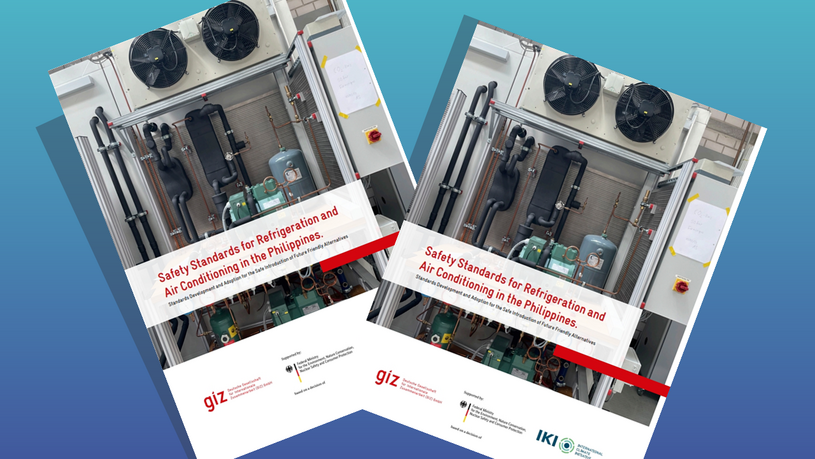The Philippines has unique experience in the field of safety standards in refrigeration, air conditioning and heat pumps (RACHP). This report provides the country's experience of adopting international safety standards in air conditioning, refrigeration and heat pumps as national standards.
The Philippines actively participates in global efforts to standardize refrigeration, air conditioning, and heat pump (RACHP) regulations. As a member of specific RACHP subcommittees of the International Electrotechnical Commission (IEC), the country develops, adopts, and promotes standards, aligning local product safety regulations with IEC standards, adopted as Philippine National Standards (PNS). The Philippines also votes in key environmental standards committee of the International Organization for Standardization (ISO).
This report provides the experience of the Philippines in adopting international safety standards in air condititiong, refrigeration and heat pumps as PNS. Given local manufacturing capabilities on RAC appliances and equipment, the Philippines always used the vertical product standards IEC 60335-2-24 and IEC 60335-2-40 as basis of technical regulations over cooling appliances. Through both phases of the C4 project (C4 & Ca II), the country began adopting ISO 5149 and ISO 817 standards for refrigerants. In preparation for transitioning to low Global Warming Potential (GWP) refrigerants under the Kigali Amendments, the Philippines uses standards to safely introduce alternatives, avoiding arbitrary restrictions based on flammability, toxicity or pressure.
Background
The global projects Cool Contributions fighting Climate Change C4 II (Ouvrira une nouvelle fenêtre) and C4 are both implemented by the Deutsche Gesellschaft für Internationale Zusammenarbeit (GIZ) on behalf of the International Climate Initiative (IKI). In the first phase (C4 I) was implemented on behalf of the German Federal Ministry for the Environment, Nature Conservation, and Nuclear Safety (BMU) from 2016 to 2021. The second phase (C4 II) has been implemented on behalf of the German Federal Ministry for the Environment, Nature Conservation, Nuclear Safety and Consumer Protection (BMUV) from 2021 - 2025.

